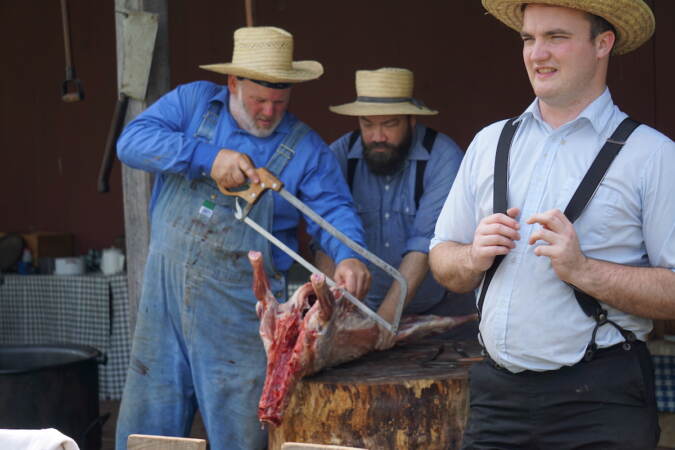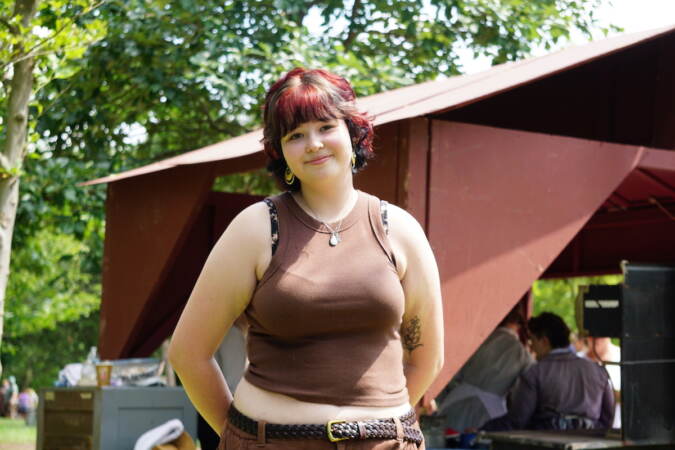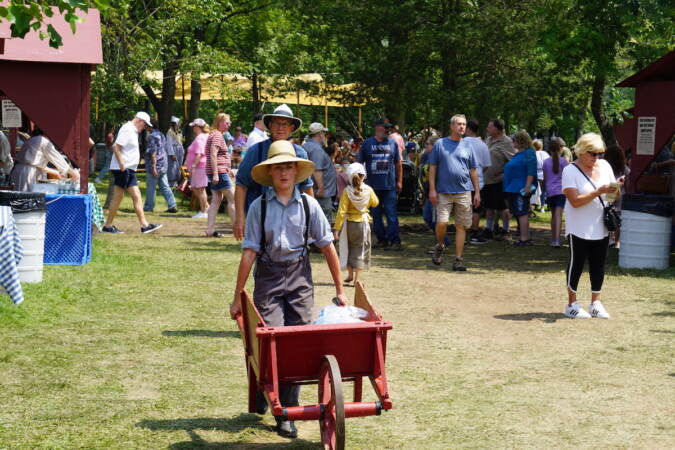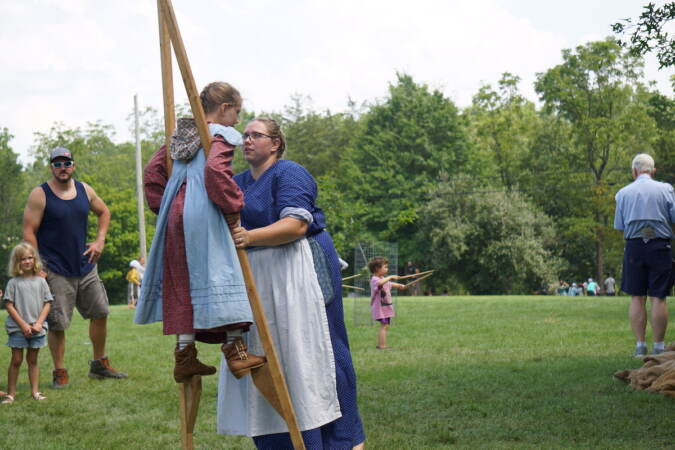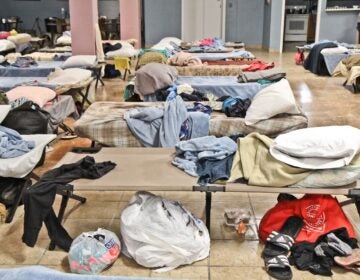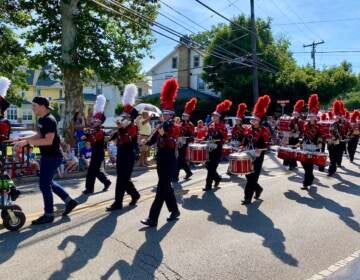Goschenhoppen Festival returns for the 55th year, celebrating the 18th- and 19th-century Pennsylvania Dutch culture
The festival, held each year in rural Perkiomenville, Montgomery County, celebrates the life, food, and culture of 18th- and 19th-century German settlers.

Volunteers making traditional potato candies, made mostly of sugar and cooked potato. (Emily Rizzo/WHYY)
WHYY News’ suburban reporters want to hear from you! Ask us a question or send us an idea for a story you think we should cover.
Jenny Shearer’s parents put her in a basket and brought her to the Goschenhoppen Festival when she was three months old. The festival, held each year in rural Perkiomenville, Montgomery County, celebrates the life, food, and culture of 18th and 19th century German settlers.
Shearer, now 37, co-runs the festival with her father, Al Goldey. She moved out of Pennsylvania in the early 2000s, but travels from Maryland to be immersed in the culture of her ancestors, who laid down roots along the Perkiomen Creek in the 18th century.
“A lot of it is tied to the very fond memories that I have, and making that available to my kids,” Shearer said.
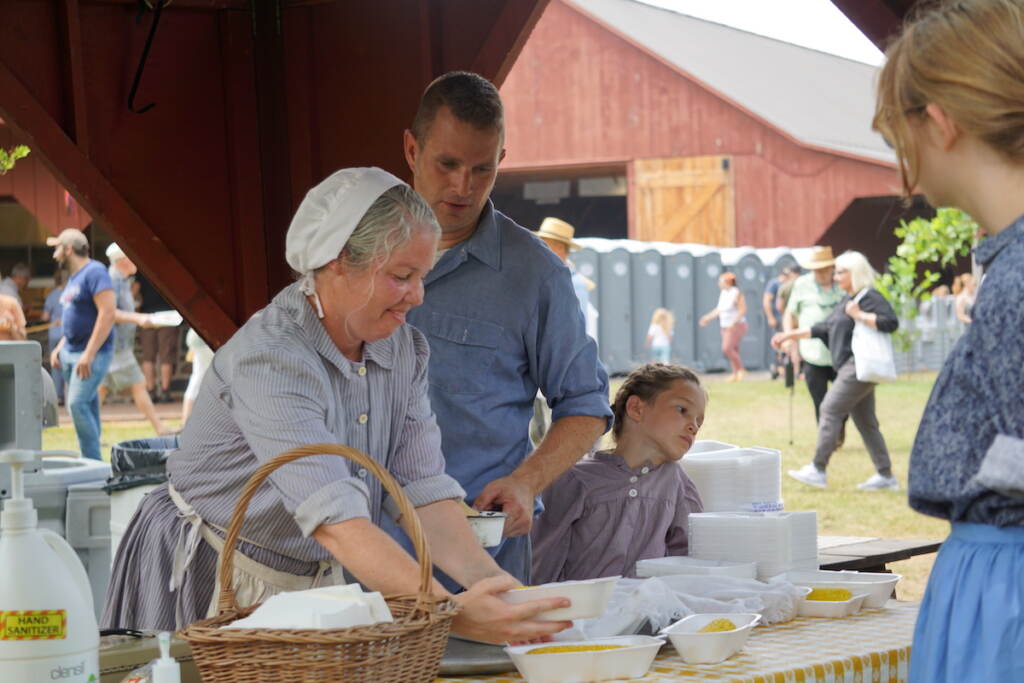
Saturday was the festival’s 55th celebration. It attracted hundreds of visitors and over 500 volunteers, including Shearer and her family. They came from across the United States and Pennsylvania. Volunteers celebrated the life, food, clothes, and culture of their ancestors and demonstrated woodworking, ropemaking, quilting, and cooking techniques of the 18th- and 19th-century German settlers.
Festival goers got to taste homemade traditional Pennsylvania Dutch food such as fastnachts, shoofly pie, sausage sandwiches, pickled eggs, potato candies, blueberry schrub, and root beer made through fermentation. Children ran barefoot in traditional garb and bakers made apple dumplings in wood fired ovens.
“It’s exposing people to things that they wouldn’t otherwise have the opportunity to see,” said Shearer, whose family moved to Montgomery County in the first half of the 1700s.
83-year-old Alan Keyser has been volunteering since the day the festival began, 57 years ago (the festival didn’t run for two years during the peak of the COVID-19 pandemic).
“It’s a good portrayal of life as it once was in the area. We bring it back a couple days a year, just to show the public what we once had,” Keyser said.
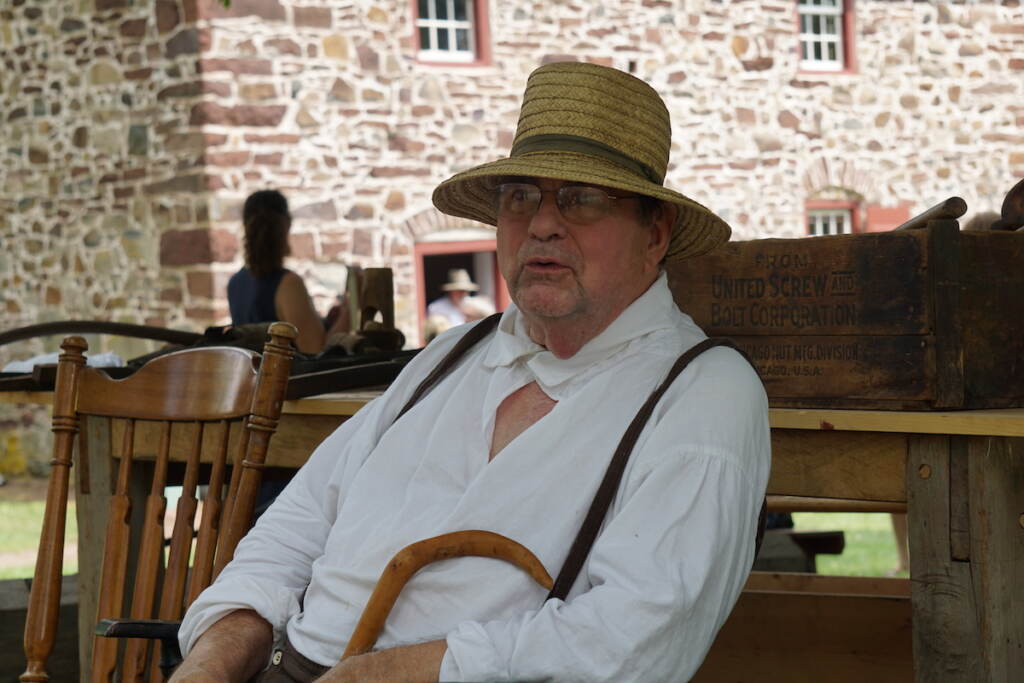
Like many volunteers, Keyser has Pennsylvania Dutch roots. His ancestors first immigrated from Amsterdam to Germantown in 1688 and moved to Montgomery County by 1720.
“It just feels like home,” Keyser said. “It was a tight community where everybody helped everybody. It wasn’t every man or every woman for herself. If you didn’t help, you wouldn’t get any help.”
Volunteer smoker Lee Bassett showed off a new authentic Pennsylvania Dutch smoker, which masons have been building over the last five years. It’s a replication of a smoker found at a nearby farm.
Bassett was smoking sausages and pork bellies, ready to be served in a few hours. He said the Pennsylvania Dutch process was much slower. Meat would smoke low and slow for two weeks.
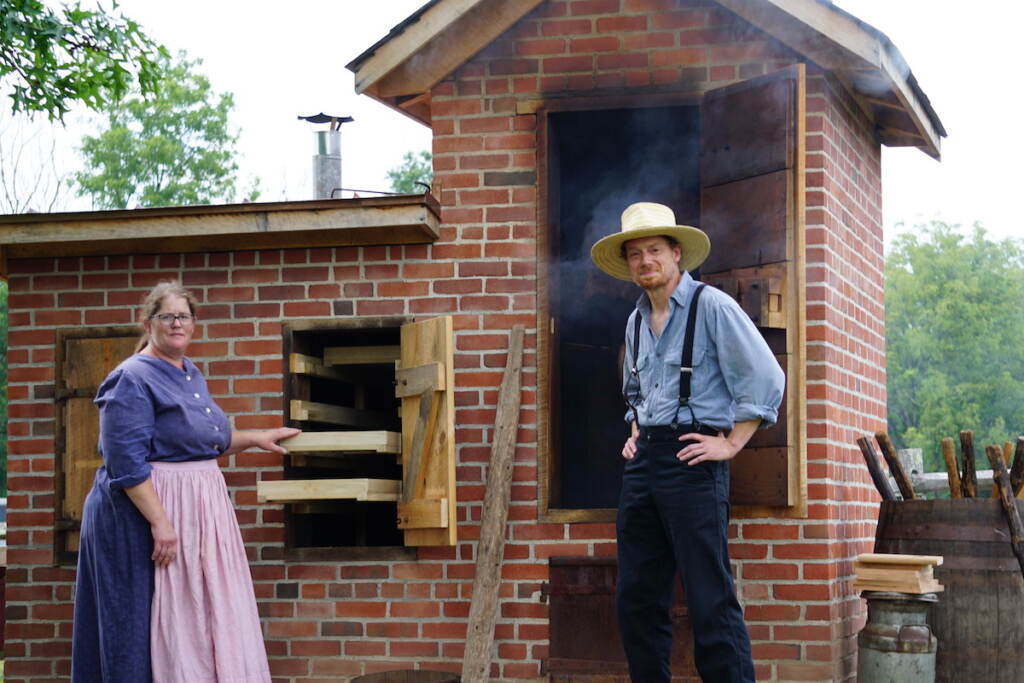
“They would’ve run this smokehouse to smoke a ham after it had been cured for a month, grant you,” Bassett said. That meat would then be eaten over the course of the year.
Bassett is a University of Pennsylvania associate professor and teaches quantum engineering. He’s volunteered at the festival for almost 30 years. Nearby, butchers broke down a lamb and explained how the Pennsylvania Dutch would use every bit of the animal. “Everything but the squeal,” is the phrase, Bassett said.
Volunteers at the festival came from a wide range of backgrounds. Many, like retired nurse Pat Gottshalk, are attracted to the event to better understand their roots and how their ancestors lived on the day to day.
“It’s practical, it’s easier to retain,” said Gottshalk, from Buckingham Township. “It’s hard to know where you’re going if you don’t remember where you came from,” she recalled a Maya Angelou quote passed to her from an old history professor.
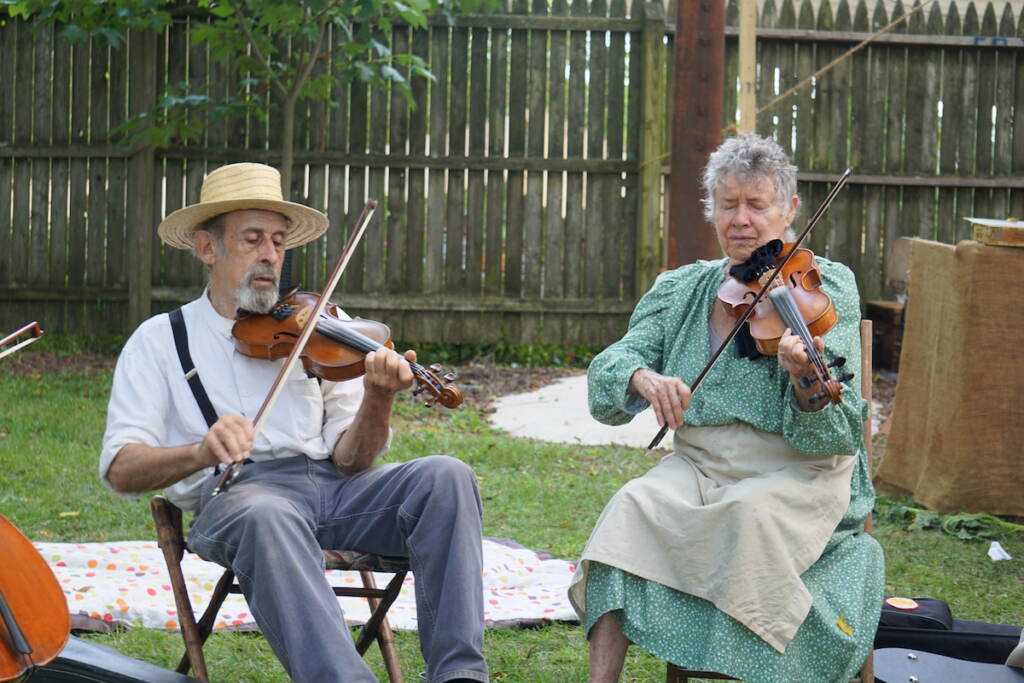
Volunteer Ginny Ward, with the Upper Salford Historical Society, was handing out tickets at the entrance.
Ward said the festival brings a strong sense of community.
“Public health gets started with a sense of community,” Ward said. “This is a very welcoming community. It’s not meant to be isolated. This is where it all started and if we as a United States can’t be welcoming one another, I don’t know what it’s about.”

Get daily updates from WHYY News!
WHYY is your source for fact-based, in-depth journalism and information. As a nonprofit organization, we rely on financial support from readers like you. Please give today.


